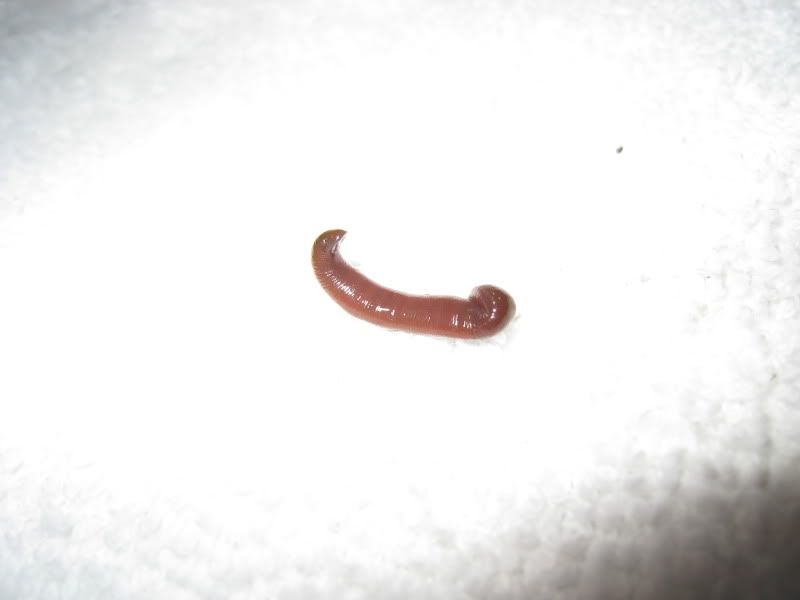The overexposed picture shows the color as it appears. The underexposed picture shows good detail. When stretched out this guy is about 2" to 2.5" (inches).





This will kill both Leeches and Planaria, but I'd strongly recommend reducing their number first. During the day they will congregate under stones, wood etc and can be removed by hand (just drop the stone into very warm water to kill them). If you combine this with the baiting method "Wijnands" and I have used successfully, this should thin the number down before you use chemical methods.I am going to follow you recommendation on Praziquantel.
Possibly why they haven't been attracted to the bait. The ones I have are Planaria sized and translucent cream (although you can see the sucker etc with a low powered microscope), they definitely don't parasitize the fish, but they are very attracted to dead prawns("Shrimp" to Americans), you can see their distal end "waving" in the current as they move up current towards the food (presumably they are sensing molecules in the water).many, perhaps most, species of leech are not parasites but small predators who scavenge and eat snails and worms.
Seems a sensible approach, best of luck.1) Clean out as many leaches by hand possible
2) Bait overnight (although I've had almost no success with this)
3) Medicate the next morning
4) Hourly tank checks - pull out any dead/dying leaches (Saturday/Sunday)
5) Do water changes as necessary
6) Hope for the best.